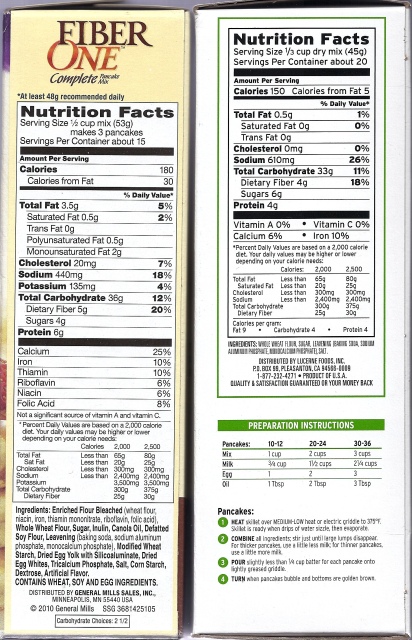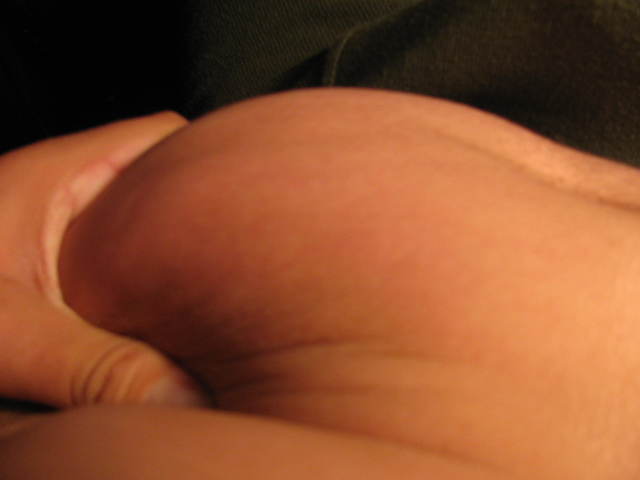Paxil and weight loss meds
Question
I started Weight Watchers a little over two years ago at 203 pounds (I am 5'5" and 32 years old). I lost 8 pounds the first month, but then took a year and a half to get down to 166 last fall. I gained some weight over the holidays and then in February switched from Premarin to EstraTest (hysterectomy in February of 2003). Within six weeks, I gained 15 more pounds but was also going through several stressful situations at the time (cystoscopy, school board issues being a board member, family stressors). My doctor wanted me to stay on the EstraTest (originally put on to increase libido and energy) and to try Paxil for anxiety and depression.
The Paxil has worked great for the depression and anxiety, but I am still struggling with my weight. I am now back up to 185. I have been exercising on and off and am still going to Weight Watcher meetings. I just can't seem to stay with the program and get really down on myself for gaining so much of my weight back. I am very, very interested in trying a medication for weight loss such as phentermine or xenical, but all seem to be contraindicated with the Paxil.
My doctor isn't too keen on me trying anything for weight loss being on the Paxil, but I am really wanting to try SOMETHING! I have an uncontrollable sweet tooth and will get into the chocolate chips if there is nothing else around. I also have low energy and fatigue often. When I have even a healthy snack I tend to go overboard. (i.e., not one granola bar but three).
I have had my thyroid checked and had other blood work done to rule out any underlying condition, all of which were negative. My target weight is 150 pounds. I love the WW program and know it works; I just can't seem to get motivated again even though I continue with meetings.
Pertinent information: I am on ibeuprofen 600 mg (for arthritis) t.i.d., EstraTest, Paxil, flaxseed oil, and Allegra. I am married to a very supportive husband and have three children ages 7, 5, and 2 and had a hysterectomy last year for endometriosis. I live in a small town with no gym nearby, but enjoy step aerobics and walking when the weather is nice.
I would be interested in information on diet pills/supplements that are not contraindicated with Paxil so I can discuss those options with my doctor at my appointment next week. Any advice/suggestions would be greatly appreciated!
Thanks for your time...
Shari
I don't consider this a "diet". It is a lifestyle change. This is a lifestyle shown in studies to reverse heart disease. Not stop its progression, but actually reverse it!
The good thing about this lifestyle is that you don't starve yourself. You just eat good food.
Our bodies were essentially designed to eat vegetables and fruit and complex carbs. If you look at our tooth structure and the length of our intestines, they were designed for vegetables/fruit/complex carbohydrates much more than they were designed for meat. A low fat diet can prevent 15-20% of all cancers. Notice, not all of them....so you have to die from something.
Remember, in the 50 years of the Framingham study that looked at risk factors form heart disease, none of the 6,000 subjects who had cholesterol less than 150 had a heart attack!
I try to explain the diet part by following 2 simple rules:
1. Eliminate animal fat. Because of this rule, it turns you into a "vegetarian". Oh well. There are some things to learn about this like making sure you still get essential amino acids. Soy protein has all eight essetial amino acids. Rice and beans have the major 3 amino acids (tryptophan, methionine, lysine). If you eat breakfast cereal with a dab of nonfat yogurt, you get the essential amino acids. In general "whole grains" plus legumes (any bean) will give you the essentials. Your body only needs 14 grams of essential fats a day to survive and you can easily get this from vegetables. I also take a B12 vitamin to ensure I get enough B12. I use soy milk on my cereal (and sometimes drind 4 oz extra).
Remember 1 gram of fat is 9 calories. One gram of protein or carbs is 4 calories. That is part of the reason you don't need to worry how much you eat in this lifestyle. You eat when your hungry. But as explained in rule number 2, you don't get hungry the same way you are now!
2. Eliminate simple carbohydrates. What does that mean?
First, eliminate simple sugars like cake, candy, cookies, pop (regular), juice, etc. In other words if it tastes sweet, avoid it. I follow this rule 98% of the time. I will have a rare jelly bean or ice cream/cake at a birthday party, but in very limited quantities and never more than once a week. This rule is very important to stop the carb cravings you talk about.
Second, eliminate processed grains. These are things with white flour/white rice, etc. When they process the grain, they take out the fiber and bran which slows the absorbption of the carbs. Subsequently, just like with simple sugars, you raise you blood sugar level quickly. This makes insulin rise, but it will frequently overshoot.
This causes two problems: 1. It turns on your lipoprotein lipase and causes you to turn your sugar to fat. 2. It causes your sugar to go back down low and drive you to crave more carbs and thus the cycle begins all over again. After two weeks of this low fat/no simple carb diet, those cravings will go away. You still get hungry..in fact I "graze" a lot. I eat pretty much all day, but follow the rules.
What are complex carbs? Whole grains....whole wheat, brown rice, corn, rye, etc. If you buy bread make sure it is 100% whole grain. Many "wheat" breads in the store still have white flour in it. If ingredients say "enriched flour" it likely is white flour.
This is not hard to follow from the standpoint of hunger. It is hard to follow from the standpoint that in our society, 80% of the foods (or more) that are presented to you in social situations are simple carbs and fat.
It takes discipline. But I have come to think of those foods as poison since they make me feel lousy.
Benefits of this lifestyle:
1. More energy
2. Less anxiety/depression
3. eliminates heart disease and type II diabetes
4. lowers cancer risk (not eliminate)
5. you will drift to your "ideal" body weight without focusing on losing weight. It may take 6-12 months, but it will happen if you are strict on the rules.
Other components to the lifestyle besides what you eat:
1. exercise
2. eliminate caffeine (I haven't completed this yet, but I am close) This and all stimulants increase the activity of your nervous system and this has negative consequences for your heart. Eliminating this also reduces anxiety.
3. meditate/pray/relax your muscles.
Atkins had it 1/4 right. By eliminating carbs, his diet eliminates simple carbs. But you don't have to eliminate complex carbs...he's wrong there. Also, fat itself in the diet is shown to cause damage to arteries and make you blood easier to clot regardless of cholesterol. Remember Dr. Atkins had heart attack 2 years ago, but he said his diet didn't cause it!
Sorry for the long winded answer, but I think this is the key to obesity in America. We are loaded with simple carbs and fats and we wonder why we can't lose weight. Remember, the average Chinese person is near ideal body weight. The average American is obese. The Average Chinese eats less than 15% fat diet. The Average American gets 40-50% calories from fat. The average Chinese eats 20% MORE calories per day than the average American, but they are not fat!
- Prev:Losing 20 pounds
- Next:L Tyrosine
Related Articles
-
iron content of beets
QuestionHi,my OB here in Germany just told me to eat red beets to
-
Visceral Fat?
Question Hi I am 55. In my early 40s I started to get the typic
-
Dieting without losing breast size
QuestionI have a slender body except for my thighs and abs and wo
-
soups
QuestionHi Tom I am a big big fan of soups and stews - mainly a
-
I am trying to loose twenty...
QuestionI am trying to loose twenty pounds that i have put on wit
-
Weight gain with Boost
QuestionHi George, my question is actually about gaining weight a




